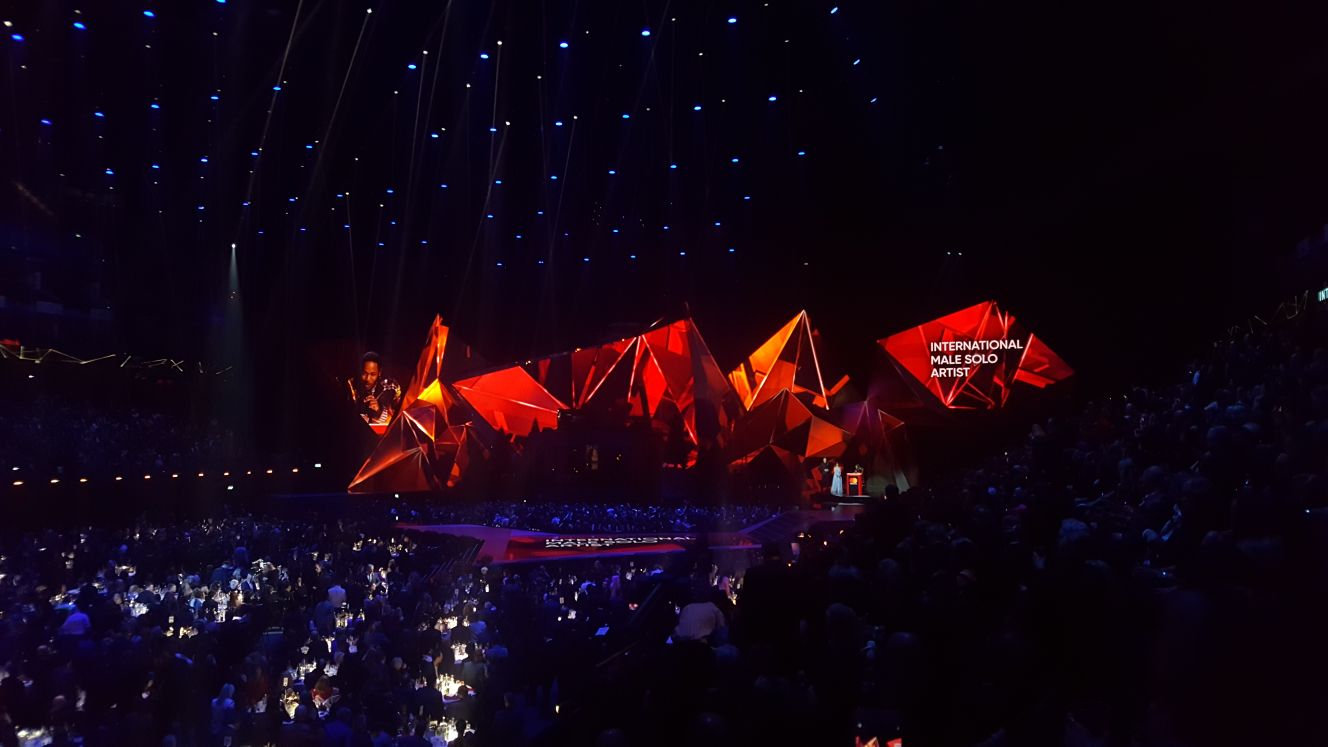There is no doubt that the Brit Awards are less entertaining than they used to be. 1995 saw the Blur vs Oasis battle seemingly decided with a Blur win, 1997 saw Mark Morrison walking on stage singing ‘Return of the Mac’ lined with policewomen dancers to celebrate his release from prison that day, and 2000 saw Robbie Williams challenge Liam Gallagher to a televised boxing match.
It appeared that all was lost in the James Corden and Ant and Dec years since 2011 when the show changed venue to the 02 Arena. The pub-like atmosphere of Alexandra Palace, the Hammersmith Odeon and the Earls Court Exhibition Centre has been removed and the sound quality for viewers has become dissonant. The guests and nominees now look like they are part of some sort of surreal theatre play, sitting at tables surrounded by steep tiers of people watching their every bite. The 2008 show has been considered the last rock n’ roll hoorah for the awards with the Osbournes hosting it in the only way they know how: risqué. Others say 2010 was the final screamer with Peter Kay as host before the awards changed venue. This year may be an exception to the rule. This isn’t to say that the Brit Awards has returned to its former glory, but it certainly had more pizazz than previous years.
2018 is the year the Brit Awards officially recognised Grime on a global scale. Stormzy alone deservedly racked up two awards for Best British Album and Best British Male, with fellow Grime artist J Hus being nominated for three awards. At last, this raw, uncensored street music has been given official credit for its brilliance.
However, unsurprisingly, people were censored. Damon Albarn was silenced for voicing his views on Brexit, with even Jack Whitehall saying, “I’d have let them speak all night if it was my choice”, plus Kendrick Lamar’s references to drugs and sex in his performance were muted. One thing ITV and the Brit Awards have failed to realise is that the edgier the show, the more people will watch it. This is an age-old tactic, used by many, most famously by Sex Pistols manager Malcolm McLaren, who used the band’s unplanned swearing on pre-watershed television to their advantage and gain press coverage. I am not advocating harmful behaviour, but what I am saying is that a bit of rebellion is needed for real change to be made (and also for great entertainment).
So, have the Brit Awards lost their shine? For me, the answer has got to be yes, but this year’s awards show was the best we have had in seven years. It had its fair share of political angst and had more atmosphere, rebellion and edginess than the past seven years of Brit Awards shows. Despite this, at no point was I worried that Dua Lipa might drop the C Word or that a fight might break out between the nominees; I was more worried that Liam Payne might win Best British Single with ‘Strip That Down’. Maybe this is a good thing. Maybe shifting the focus from drama to music is what the Brit Awards needs, but in my view, music is all about drama. So please Brit Awards: change venue and stop censoring your guests. They are rockstars after all.

